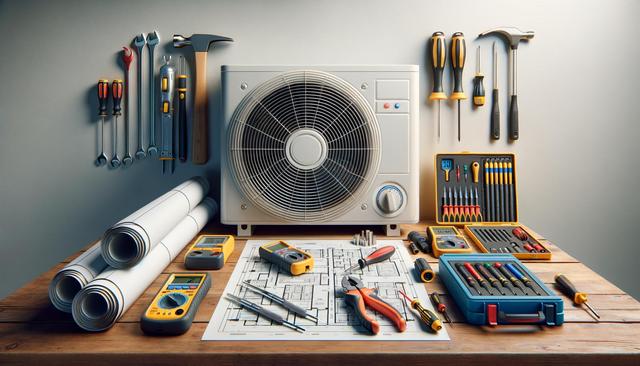
Everything You Need to Know About HVAC Technician Training
Understanding the Role of an HVAC Technician
Heating, ventilation, and air conditioning (HVAC) technicians play an essential role in maintaining indoor climate control systems. These professionals are responsible for installing, repairing, and maintaining systems that regulate air quality and temperature in residential, commercial, and industrial buildings. The job requires both technical knowledge and hands-on skill, making formal training a crucial step for anyone entering the field. HVAC systems are becoming increasingly complex, incorporating smart technology and energy-efficient components, which means that technician training must cover both basic principles and advanced technical knowledge.
In addition to technical skills, HVAC technicians must also have strong problem-solving abilities and customer service skills. They often work in varied environments and must adapt to different types of systems and client needs. With the demand for energy-efficient and environmentally friendly systems growing, technicians must also stay current on regulatory changes and new technologies, which is why continuous training is often necessary even after certification.
What to Expect in HVAC Technician Training
HVAC technician training programs are designed to provide a mix of classroom instruction and hands-on experience. These programs typically cover a wide range of topics to ensure technicians are well-prepared for the job. Core areas of study often include:
- Basic electricity and electrical systems
- Refrigeration principles and cycle
- Heating systems including furnaces and heat pumps
- Air conditioning systems and components
- Ventilation and air quality control
- Safety protocols and industry regulations
Many training programs also include preparation for certification exams, which are necessary for employment in many regions. The curriculum is usually structured to allow students to gradually build their knowledge, starting with HVAC basics and progressing to more advanced techniques. Some schools offer accelerated programs, while others provide part-time options for those balancing work and study.
Choosing a Certified HVAC Training Program
When selecting an HVAC training program, it’s important to choose one that is accredited and recognized by industry authorities. Certification ensures that the program meets established standards and that graduates are qualified to work in the field. Look for programs that offer:
- Accreditation by a recognized trade or educational body
- Experienced instructors with field knowledge
- Access to modern HVAC equipment and tools
- Opportunities for hands-on training
- Job placement support or internships
Some programs also offer specialized tracks in areas like commercial refrigeration or green energy systems, allowing students to tailor their education to specific interests. Choosing a program with a strong reputation and practical training components can significantly improve job prospects after graduation.
Importance of Certification and Licensing
Certification and licensing are crucial for HVAC technicians, as they demonstrate a minimum level of competence and are often required by employers and regulatory bodies. Common certifications include those related to refrigerant handling, safety compliance, and specific equipment operation. Technicians may also need to pass state or local licensing exams, which test both theoretical knowledge and practical skills.
Holding the appropriate certifications not only boosts employability but also opens doors to more advanced job roles and higher pay. In many cases, employers prefer or require certified technicians due to liability concerns and the technical nature of the work. Continuing education is also important, as technologies and regulations change over time. Staying certified ensures that a technician’s skills remain relevant and up to date.
Career Outlook and Opportunities in the HVAC Field
The HVAC industry offers a range of career opportunities, from residential service to commercial installation and system design. As buildings become more energy-efficient and technologically advanced, the need for skilled HVAC technicians continues to grow. Job stability in this field is strong, especially in regions with extreme weather conditions where climate control systems are essential.
Technicians can progress in their careers by gaining experience, acquiring additional certifications, or pursuing advanced education in HVAC system design or energy management. Some may choose to specialize in areas like solar-powered HVAC systems, commercial refrigeration, or system automation. Others may move into supervisory or teaching roles, sharing their knowledge with the next generation of technicians. Self-employment is also a viable path for experienced professionals who want to start their own service businesses.
Conclusion: Preparing for a Skilled and In-Demand Career
HVAC technician training provides a solid foundation for a technical career that combines problem-solving, customer interaction, and mechanical expertise. With certified training, individuals can learn HVAC basics and advanced techniques, preparing them for a variety of roles in a growing industry. Whether you’re just starting out or looking to enhance your skills, choosing a quality HVAC training program is the first step toward a rewarding and stable profession. As the industry continues to evolve, well-trained technicians will remain in high demand across residential, commercial, and industrial sectors.


